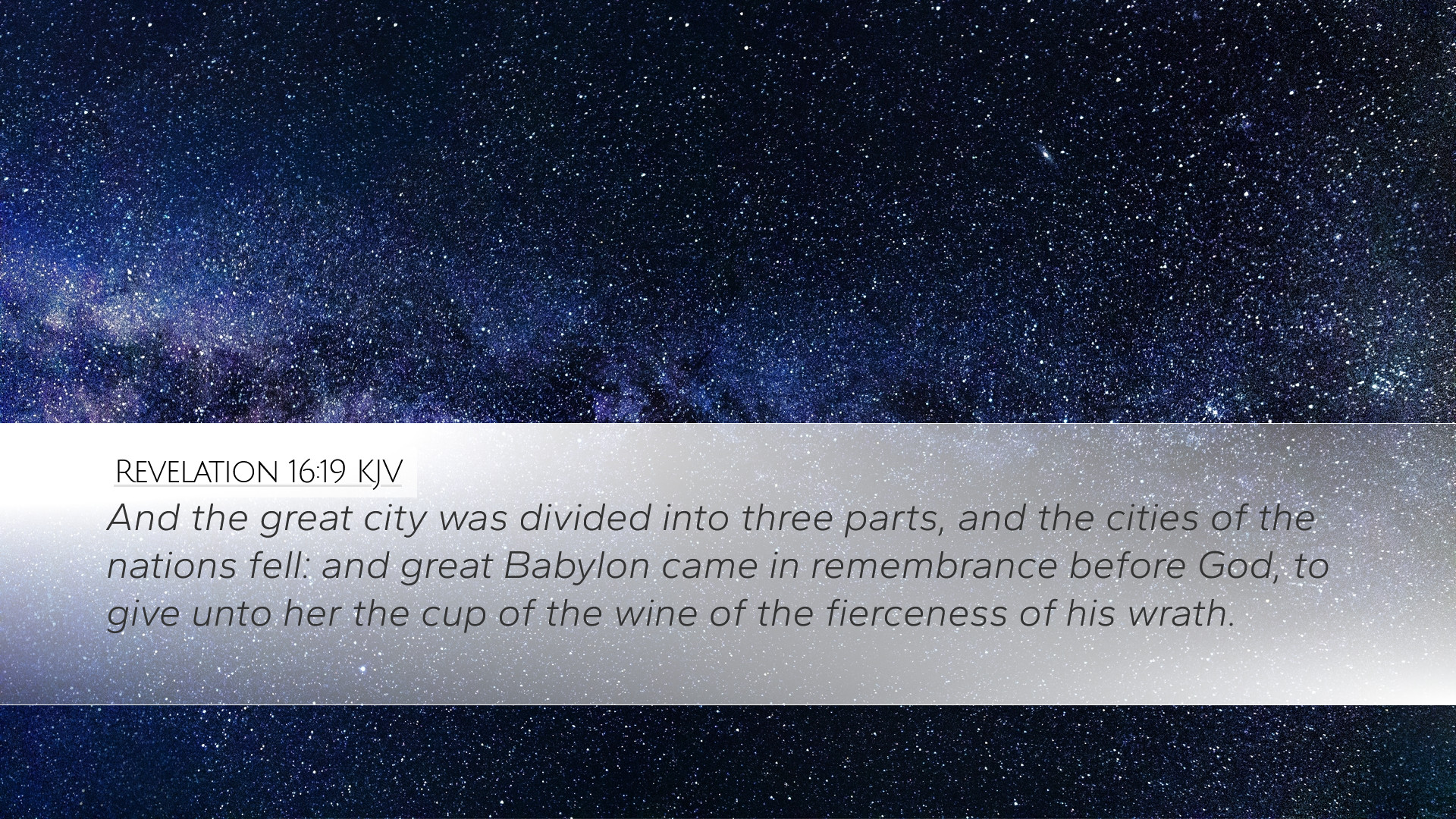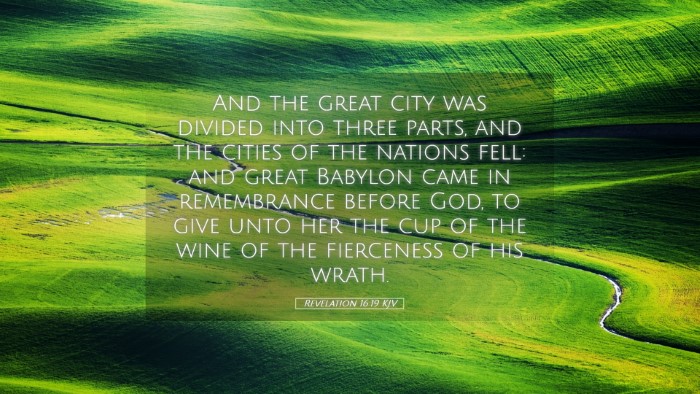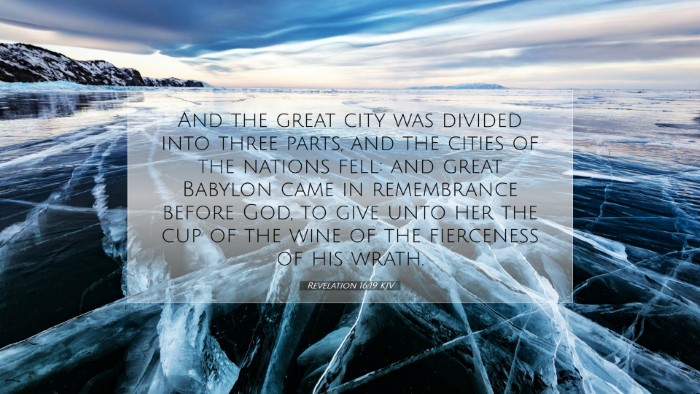Commentary on Revelation 16:19
Verse: "And the great city was divided into three parts, and the cities of the nations fell: and great Babylon came in remembrance before God, to give unto her the cup of the wine of the fierceness of his wrath."
Introduction
This verse from the Book of Revelation serves as a pivotal moment in the eschatological narrative crafted by John. The imagery reflects the ultimate judgment of God upon humanity’s wickedness, specifically targeting the symbolic representation of human pride—Babylon. Commentaries from Matthew Henry, Albert Barnes, and Adam Clarke provide rich insights into the themes and implications of this verse.
The Great City
Matthew Henry interprets the "great city" as a symbol of all that is opposed to God. It signifies the culmination of human pride and rebellion, dividing it into three parts which may symbolize the tripartite nature of opposition against God in different realms—spiritual, moral, and political.
Albert Barnes further expounds that the division signifies the judgment of God on various levels, indicating that even the foundations of earthly power (the cities of the nations) will collapse under divine judgment. This is not merely a geographical referencing but an indication of moral and spiritual disarray.
The Collapse of Nations
The phrase "the cities of the nations fell" suggests a totality of divine judgment where not just one city but all earthly civilizations are brought to their knees. Adam Clarke notes the prophetic nature of this statement, indicating that nations built upon injustice and immorality will ultimately be dismantled in God's perfect justice.
- Divine Retribution: Clarke illustrates that the fall of nations points to a broader truth of divine retribution—what is sown in injustice, pride, and sin is ultimately reaped in destruction.
- Contrast to Heavenly Authority: Henry emphasizes the contrast between the fleeting power of earthly cities and the eternal authority of God's kingdom.
Great Babylon
Babylon stands as a representative of the enemies of God, embodying all that is corrupt and opposed to His ways. Henry suggests that God's remembrance of Babylon signifies a divine reckoning, a timely response to the accumulated sins of those who have opposed Him.
The Cup of Wrath
The mention of "the cup of the wine of the fierceness of his wrath" illustrates the severity of the imminent judgment. Barnes implies that this cup is not just a metaphor but a tangible action by God, encapsulating His anger against rebellion.
- Symbolism of the Cup: The cup represents the fullness of divine wrath that must be poured out as justice for heinous acts committed on earth.
- Historical Context: Clarke reflects on past judgments, such as those witnessed in the destruction of Jerusalem or the fall of empires that have turned against God.
Theological Implications
This verse raises profound theological questions about justice, mercy, and the historical interplay of divine sovereignty and human agency. Henry points out that God’s remembrance of Babylon indicates that while it may appear as though evil triumphs, God’s justice is guaranteed in His time.
Moreover, Barnes asserts that this passage encourages believers to remain steadfast in faith, reassuring them of the ultimate triumph of God’s kingdom over all earthly powers. The prophecy serves as both a warning and a promise—a reminder that human civilization, in all its architectural grandeur and political might, is transient when positioned against the weight of divine holiness.
Conclusion
Revelation 16:19 encapsulates the themes of divine judgment, the transience of human pride, and the assuredness of God’s sovereignty. Adam Clarke concludes that this text serves as a call to reflection and a motivation for Christ-followers to engage earnestly in spiritual practice, recognizing the impending realities of spiritual warfare and divine justice.
For pastors, theologians, and scholars, understanding this verse in light of historical precedents and theological truths illuminates the path forward as they preach the realities of God’s forthcoming kingdom and the ultimate fate of rebellion against Him.


